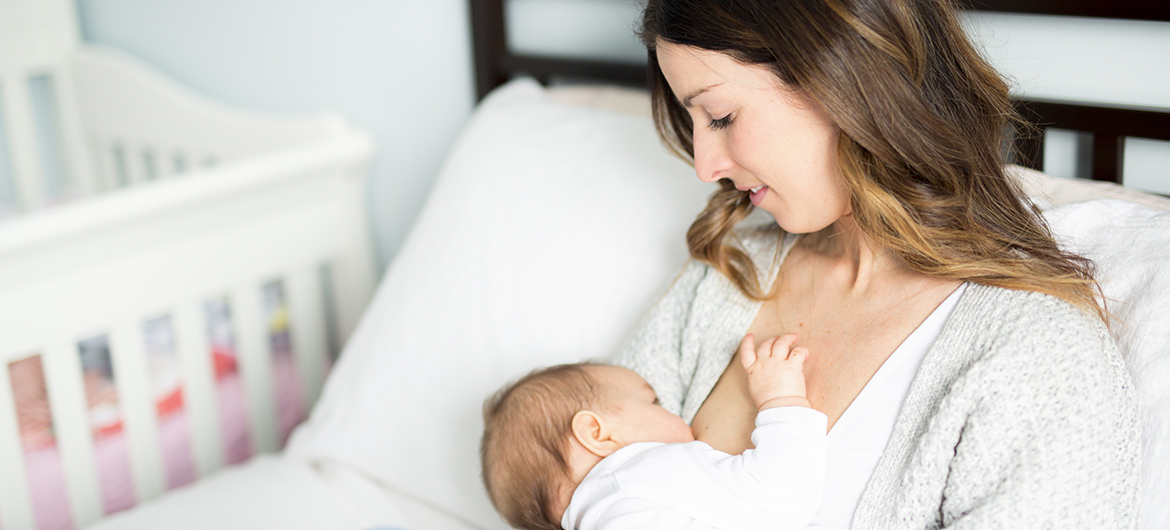For women who’ve had them, a cesarean section is not for the faint of heart. It’s major abdominal surgery and leaves new moms in need of pain control so they can focus on their new baby. A new survey conducted by Moms Meet polled 1,452 women in the U.S. and found that nine out of 10 moms are concerned with using opioids after childbirth, while 51 percent of those women actually received opioid pain medications after their C-sections.
Jamie, a mom from Pennsylvania received a prescription from her doctor after her discharge from the hospital following an unplanned C-section. “I didn’t fill it, because I seemed to be fine with over-the-counter drugs and I prefer to avoid medication when possible,” she explains. But later that night, she began experiencing severe pain over her incision site as the strong medications she received earlier that day began to wear off.
“My husband had 12 minutes to get to the pharmacy and fill my prescription before they closed,” she says. “He was successful, but it’s not something I’d like to experience ever again. If I had mixed feelings about taking the drugs, they were completely eclipsed by how bad the pain was that night.”
With the increasing concerns over opioid addiction in this country, it’s no wonder women have hesitations about taking these medications after birth, especially when their newborn is involved. In fact, the survey revealed that 53 percent of the women polled feared breastfeeding difficulties and the impact on their baby as the main reason they avoided opioid medications.
“I want to make it very clear,” explains Dr. Alyssa Dweck, OBGYN and author of the book “The Complete A-Z For Your V,” “Some women really do need pain control, particularly after complex surgeries. But we have to be thoughtful about this. Women are groggy. They’re immobile, they can’t get out of bed. This is supposed to be an enjoyable bonding experience. That’s the limitation with opioid use.”
Many women are lucky enough to go home to a support system with a new baby, but others don’t always have those options. According to Dr. Dweck, being able to properly manage pain in the hospital will hopefully transfer over to an easier management at home for Mom.
Mary, a mother from North Carolina, considers herself more “natural” when it comes to daily living. “I definitely wanted to deliver in a hospital, I just didn’t want a super medical-ized birth experience. I had read that people who avoid epidurals and other pain medications tend to have a short labor and easier recovery. I had one specific concern: constipation.” She explains that due to a past surgery where she recalls an infamous “football poop” after severe constipation, she didn’t want to repeat that same experience. She intended to go the non-medicated route for her delivery, after a discussion with her provider that a prescription was there if she needed it.
According to the survey, three in four women would rather try a non-opioid to manage their pain, but only 11 percent reported actually talking to their doctors about it.
Dr. Dweck recommends trying non-steroidal anti-inflammatories such as Motrin or Advil. She will also give her patients Toradol, which is a stronger form of Motrin.
“I have been doing this for over 20 years, and I’ve seen a major evolution in women going home with just these over-the-counter type medications, and as long as we give women expectations about what they will most likely feel and what to call us for, they tend to do pretty well with it.” She also encourages new moms to try warm baths, heating pads and ice packs.
“Women make most of the health care decisions for their families, and women are often the initial entryway into the health care system when they get pregnant and have a baby, so it’s up to us as women to really spread the word when it comes to education about narcotics. Certainly we want to manage pain, but there are alternatives out there and they are very viable alternatives.”
Reposted from Mom.me and written by Risa Kerslake.

